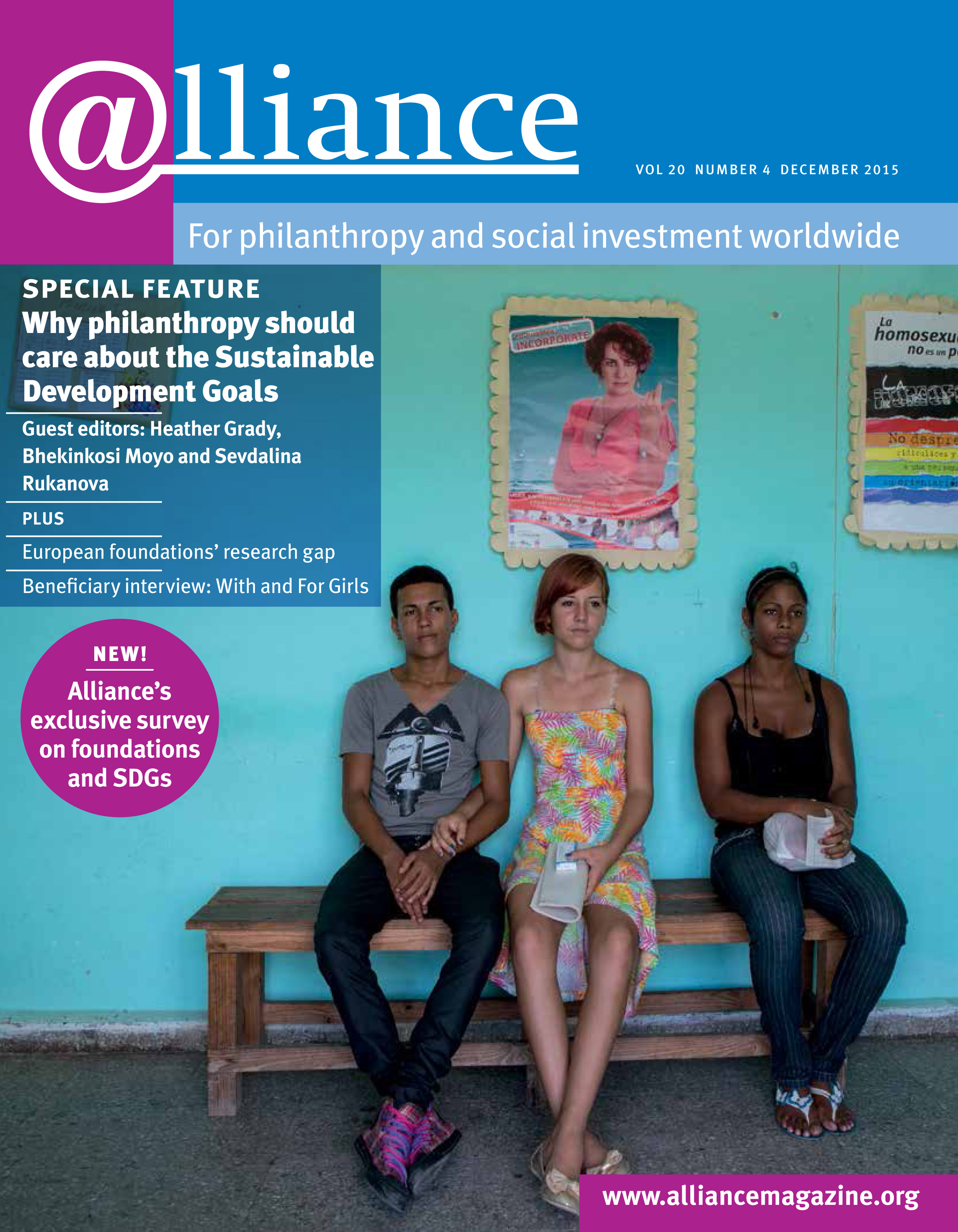Human rights defenders and other social change activists are seeing their access to foreign funding seriously affected by the growing threat to cross-border philanthropy that is a key feature of the closing down of civic space worldwide. They are looking for greater flexibility from foundations to enable them to cope with the onslaught of restrictions and threats they face, through more unrestricted funds that can support core functions, staff salaries and wellbeing; multi‑year grants; fewer burdensome reporting requirements; and for some, a stronger risk appetite from their backers.
However, while creative and flexible granting is an important part of the response, it is insufficient to address this seismic problem that donors, CSOs and, most importantly, activists face. In the Alliance September 2015 special feature, Adam Pickering and Douglas Rutzen called on the philanthropic community to engage in advocacy and funding initiatives that could help confront the tidal wave of restrictions faced by foundations and their grantees.
Here are some practical steps funders might take:
1 Get briefed up, and get involved. Join the donor working groups created under the auspices of Ariadne and the International Human Rights Funders Group on ‘Enabling Cross-Border Philanthropy’ (contact Jo Andrews: jo.andrews@ariadne-network.eu) and ‘International Grants Operations’ (contact Christen Dobson: cdobson@ihrfg.org). These are confidential spaces for philanthropists to exchange experiences, ideas, and seek or offer advice on the issues and response strategies.
2 Support local legal reform initiatives, coalitions/campaigns to negotiate over and stop restrictive laws, or strategic litigation for legal and constitutional challenges. Support model laws that give domestic force to activists’ freedom to access and use foreign funds.
3 Commission research into the value of civil society to inclusive, stable, and prosperous communities. Offer this as part of efforts to develop counter-narratives to the negative discourses and de-legitimisation of human rights and social change activists.
4 Seek and leverage support from influential voices in academia, business, the arts, media, and arms of government that aren’t hostile, giving them good evidence and clear asks for how they can contribute.
5 Collaborate in building unexpected alliances, for example, with businesses that have championed the cause of LGBTI (Lesbian, Gay, Bisexual, Transgender and Intersex) inclusion and rights activism.
6 Help document the human impact of laws and practices that restrict foreign funding – the consequences for those directly targeted and others who rely on them for day-to-day services and access to rights and justice – and use this to strengthen advocacy efforts.
7 Engage directly or indirectly in advocacy on the growing restrictions on the right to seek, receive and utilize resources, including from overseas, that are throwing up barriers to financial transfers and grantees’ access to financial services, fuelled in part by states’ implementation of Recommendation 8 of the Financial Action Task Force to counter terrorist financing and money laundering.
8 Strengthen grantees’ resilience and security – assist organizations to strengthen their governance, methods, legal compliance, quality of their data, psychosocial support and wellbeing, individual and institutional security management and protection measures.
James Savage, Human rights defenders programme manager, Amnesty International
Next letter to read:
A game‑changing moment






Comments (0)